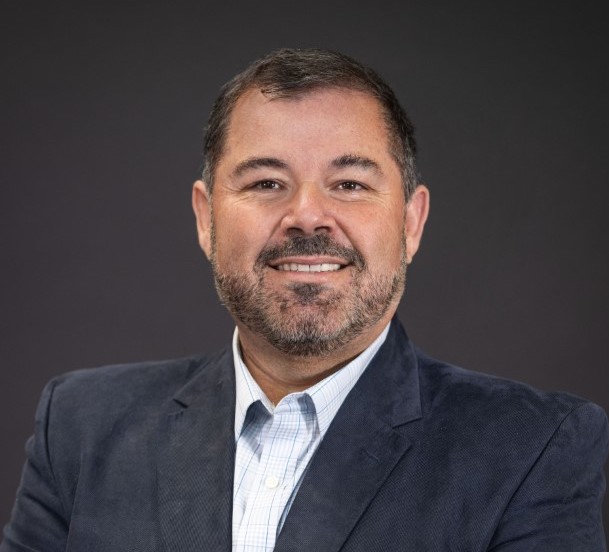Dr. Manuel Quevedo-Lopez
- Professor and Department Head of Materials Science and Engineering
- Texas Instruments Distinguished University Chair in Nanoelectronics

Established in 2007, the chair was made possible by the Texas Nanoelectronics Research Superiority Initiative, which is a joint venture between the Texas Emerging Technology Fund, The University of Texas System, UT Dallas, UT Austin, UT Arlington and private industry.
“I am very grateful and honored to hold the TI Distinguished University Chair in Nanoelectronics. This honor allows me to continue to help students pursue their passion for research while building lifelong relationships with them.”
Dr. Manuel Quevedo-Lopez works on the development of materials and devices for large area sensors and flexible electronics, an area that combines physics, chemistry and engineering.
He and fellow researchers in the Flexible and Large Area Nanoelectronics (FLAN) laboratory work on technologies for nuclear threat detection, nanomaterials for flexible electronics, process integration, memory integration, and device modeling and simulation.
“Nano- and microelectronics are essential areas for everyday technologies, and UT Dallas has been a key player in this field. My interest in this research area, as with most of us, was initially stimulated by great professors and mentors,” Quevedo-Lopez said. “My current work at UT Dallas gives me the opportunity to give back and become a mentor and help involve more students in this exciting research field.”
Quevedo-Lopez is director of The University of Texas at Dallas’ Center for Harsh Environment Semiconductors and Systems (CHESS), an initiative of UTD’s North Texas Semiconductor Institute, which opened in 2022. CHESS works to advance semiconductor technology and test electronics that will be used in harsh environments, such as in space or military operations.
A member of the Mexican National Research System at the highest level (III), Quevedo-Lopez also serves on the advisory board of ConTex, a joint initiative of the UT System and Mexico’s National Council of Science and Technology (Conacyt) to support academic and research collaborations between Texas and Mexico.
After earning his PhD from the University of North Texas in 2002, Quevedo-Lopez spent five years at Texas Instruments (TI). In 2007 he joined UTD as a research associate professor, and he was appointed associate professor of materials science and engineering in 2010.
Quevedo-Lopez and his team of researchers in FLAN developed a less expensive and more accurate portable technology to detect neutron radiation, which can indicate the presence of materials for weapons of mass destruction. The research project was supported by the Air Force Office of Scientific Research, the Department of Homeland Security, National Science Foundation and TI. Quevedo-Lopez has been awarded six patents related to the technology and has published numerous papers on it.
He earned a Master of Science in materials science and engineering from Saltillo Institute of Technology and a Bachelor of Science in chemistry and biology from the University of Sonora in Mexico, where he holds an adjunct appointment.